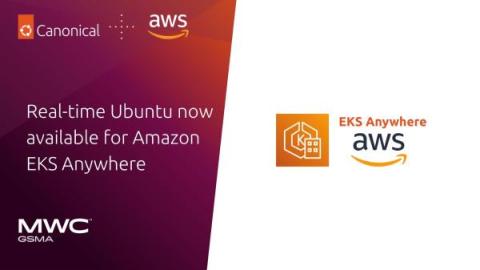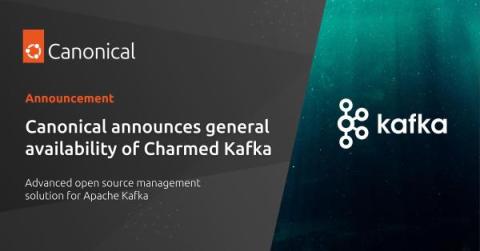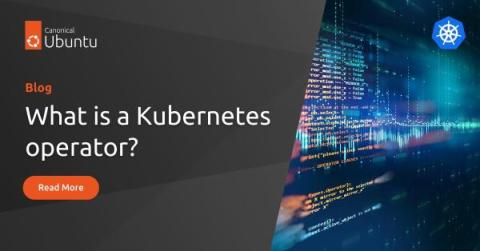Canonical announces the availability of Real-time Ubuntu for Amazon EKS Anywhere
Barcelona, Spain. 28 February 2024. Canonical today announced an expansion of its relationship with Amazon Web Services (AWS) to make Real-time Ubuntu available to Amazon Elastic Kubernetes Service Anywhere (Amazon EKS Anywhere) customers for use in Open radio access network (RAN) commercial deployments. With Real-time Ubuntu and Amazon EKS Anywhere, customers can benefit from ultra-reliable low-latency operating system performance and simplified Kubernetes cluster management.











